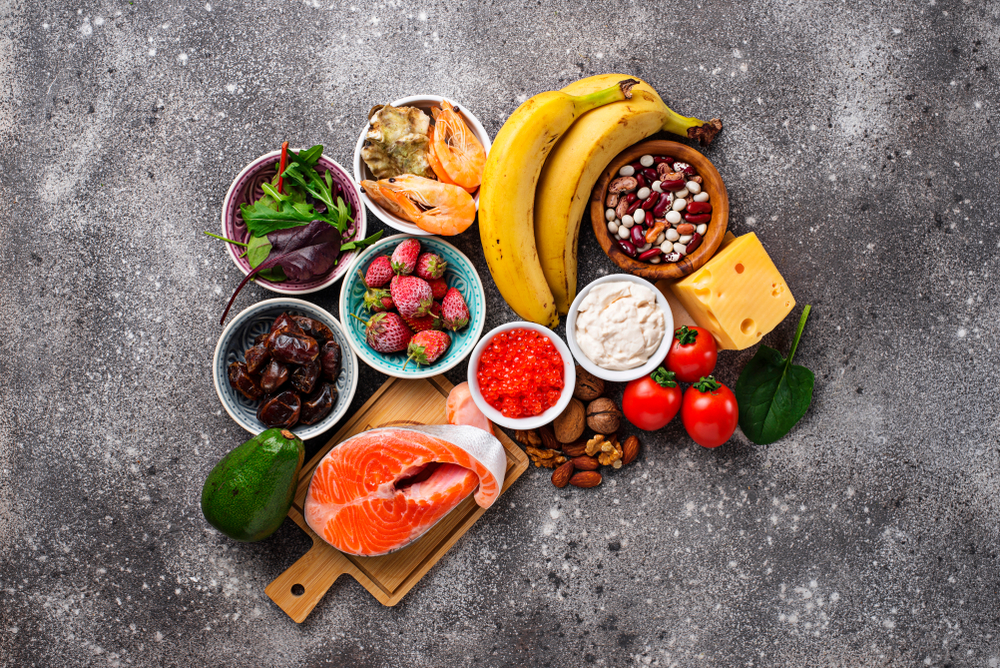
Sleeping through the night is important for your health, wellbeing, functioning, and general mood. There’s nothing worse than tossing and turning or lying awake in the wee small hours. There are so many reasons why you might be having trouble sleeping through the night – including stress, snoring, being too hot or too cold, being a smoker, or drinking too much alcohol.
Sleep can also be affected by the food you eat. Some foods will promote a great night’s sleep through the night; others will have the opposite effect. It’s important to know the differences, as simple changes to what foods you eat (especially at night) may be the difference between blissful slumber and a drowsy, cranky tomorrow.
How Does the Food You Eat Impact Sleep?
- Serotonin is a brain chemical that’s intrinsic to sleep as well as mood. Tryptophan is an amino acid which is a building block of serotonin. Foods that are rich in tryptophan may help make you feel drowsy and sleep better.
- Melatonin is another hormone critical to sleep regulation, and this is found in nuts, especially almonds.
- Protein is important to regulate the appetite and promote sleepiness at night.
- Healthy Carbohydrates increase the brain’s ability to access and use tryptophan.
- Any food that makes your stomach work harder or generates too much stomach acid will potentially disrupt your sleep.
- Caffeine is a stimulant, and will actively prevent deep lasting sleep. It will also act as a mild diuretic, making you need to urinate more throughout the night.
- Alcohol makes it easier to fall asleep due to the drowsiness it triggers, however it compromises your ability to sleep continuously and deeply throughout the night.
- Sugar is found naturally in lots of foods (e.g. fruit) as well as added in cakes, bread, and other carbohydrates. It is also produced when foods like pasta and white rice are broken down by the body. Too many (or the wrong type of) carbohydrates and sugary foods can cause unhealthy blood sugar effects throughout the day, resulting in fatigue, weight gain, and the need to nap (not to mention an array of other, more serious chronic health implications like Insulin Resistance, Metabolic Syndrome, and Type II Diabetes).
A healthy diet incorporating plenty of the right foods can help you fall quickly into a deep, lasting, rejuvenative sleep when you go to bed. Sleep deprivation, in contrast, leads to cravings for high-fat, high-sugar, high-calorie foods – which ruin your ability to sleep well. It’s a vicious cycle which can be harder to break the longer it continues.
Ironically, lack of quality sleep can also make you gain weight, or at least make it more difficult to lose weight. This is even more reason to understand the right foods to eat to get a better night’s sleep.
What Should You Eat to Sleep Through the Night?
Tryptophan-rich foods include eggs, fish, tree nuts, milk, lean chicken, and lean turkey.
Healthy carbohydrates in moderate portions. Choose whole grains and an array of coloured vegetables and legumes. Eat bread, pasta, and rice in moderation.
Eat plenty of the foods you’d choose if you sought to lose weight – whole grains, nuts, fruits, vegetables, lean protein, unsaturated fats (e.g. olive oil, avocado), and modest amounts of dairy.
Manage your portion sizes – a large meal at night will put too much strain on your digestive processes, making deep sleep impossible. It may also result in excess stomach acid, indigestion, and heartburn, especially after you go to bed.
Don’t go to bed hungry. Have a small snack before bed if you feel hungry. Choose from options such as a small bowl of sugar-free cereal with milk, a small tub of no-added-sugar yoghurt, a small banana, or a small apple with a smear of peanut butter.
Drink plenty of water. Hydration is the key to a healthy mind and body and helps avoid daytime drowsiness and sluggishness.
Some herbal teas and tisanes promote rest – including Chamomile, Valerian Root, Passionflower, Lemon Balm, Lavender, and Magnolia Bark.
Powerhouse foods to eat for better sleep include:
- Almonds
- Walnuts
- Turkey
- Kiwi Fruit
- Sour Cherries/Juice
- Milk
- Bananas
- Oatmeal
- Cottage Cheese
- Chamomile Tea
- Fatty Fish (salmon, tuna, mackerel, trout)
- White Rice (in moderation)
Foods to Avoid Before Bed
Avoid large nighttime meals and don’t eat anything (except maybe a small snack if you’re really hungry) within at least three hours of bedtime.
Generally speaking, to maximise your ability to sleep well, avoid foods that are fried, fatty, sugary, spicy, acidic, and processed.
Do not consume caffeine after mid-afternoon. If you need a hot drink, choose herbal teas, warm milk, or decaffeinated coffee.
Alcohol should be consumed only in moderation and not within a few hours of bedtime.
Popular foods to avoid before bed include:
- Celery – due to its diuretic properties
- Ice Cream – high in saturated fat and sugar
- Pasta – wreaks havoc on blood sugar levels
- Pizza – triggers heartburn
SnoreMD for Better Sleep
Changing how and what you eat is just one step towards a better quality of sleep. It will also help you maintain a healthy weight, a healthy immune system, healthy digestion, healthy brain, and reduce the risk of chronic illnesses.
If you are experiencing sleeping problems due to snoring, SnoreMD can help. It is a patented, medical-grade oral device which is worn in the mouth while you sleep. By gently repositioning the lower jaw slightly forward, it helps to open the airways of the mouth and throat and this minimizes or even stops snoring.
Affordable, reusable, and risk-free as a snoring solution SnoreMD is adjustable and is suitable for adults over the age of eighteen years.
To explore how SnoreMD can help you sleep better, and to get more information and tips about how you can sleep better, visit our Sleep Help Resources page or call us on 07 5370 9323.


